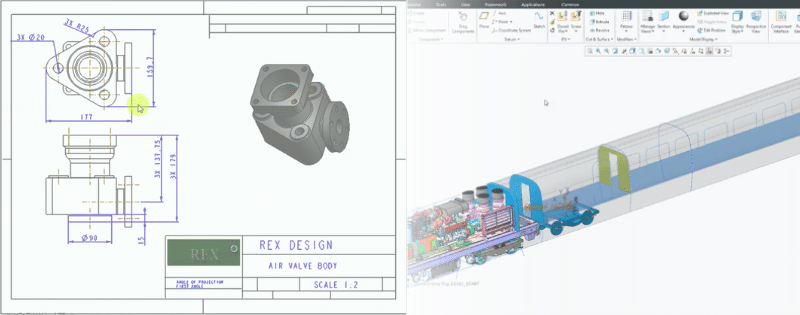Reggie Showers doesn’t shy away from a challenge. He’s a two-time world motorcycle drag race champ, a pilot, a rock climber, and a certified snowboard instructor. He always pushes himself – and his body – to the limit.
And he’s accomplished it all as a two-limb bilateral amputee.
Doing all this with these limitations was nearly impossible just a few years ago. But, thanks to College Park Industries and their technological advances, new types of artificial prosthetics help people like Reggie do things anyone can.
What helps College Park create life-changing prosthetics? PTC Creo.
Solid Footing
College Park’s first product, the Trustep foot, altered the world-viewed prosthetic functionality. PTC Creo allows them to test sophisticated dynamic response systems and a superior range of anatomical motion, quickly.
“PTC Creo enables us to quickly take any new concept to market,” says Mike Leydet, Director of Research at College Park. “We take ideas or sketches, create 3D models within days, review the industrial design aspects, tweak them, and then prototype them — all in PTC Creo.”
The Perfect Fit
There are over 40,000 viable combinations for the Trustep foot alone, which allows the product to be customized for each individual use case.
A customer’s prosthetic design can be impacted by any number of factors, including:
- Age
- Foot size
- Side
- Level of activity
- Impact level
College Park designers use PTC Creo to design and model every prosthetic they produce.
“With the parametric design approach provided by PTC Creo, the team can scale the design for sizes, stiffness, and other parameters,” says Aaron Taszreak, Engineering Manager at College Park. “As the flexing force changes with each combination, we can account for all [the factors] in our designs, and our tooling, and our assembly processes.”
Climbing Every Mountain
For College Park, PTC Creo has spurred innovation across the board. It assists with:
- Testing, tooling, and molding design
- Designing and manufacturing the jigs, fixtures, tools, and mold assemblies needed to manufacture the prosthetics’ components
- Simulating and predicting stresses and strains in 3D models, shaving off months of testing physical prototypes
- Development and production of products in record time
Using PTC Creo, they were able to cut the prosthetic’s weight by 10 percent, while increasing its strength by 40 percent. The resulting design, the Soleus Tactical, is the perfect balance of flexibility and performance.
While they’re undoubtedly an accomplished company, the College Park team isn’t only concerned with traditional ways of measuring success. As Leydet notes, “We’re successful anytime somebody like Reggie Showers goes rock climbing or snowboarding, and we know our product helped make that possible.”

